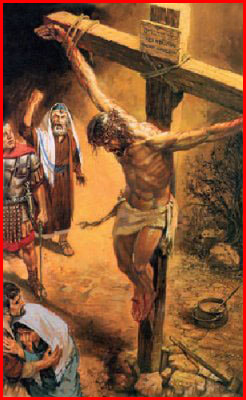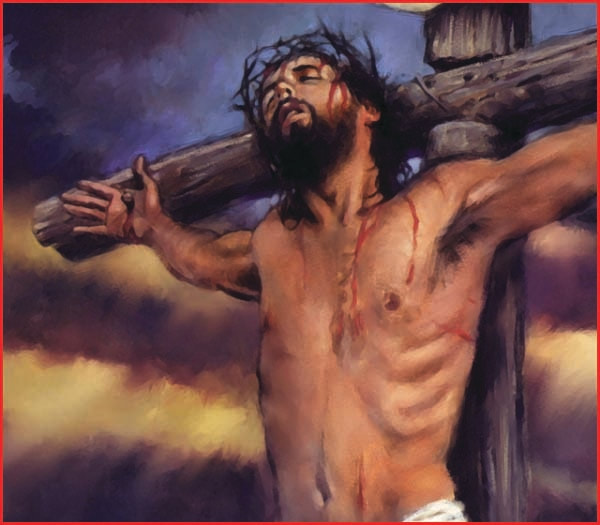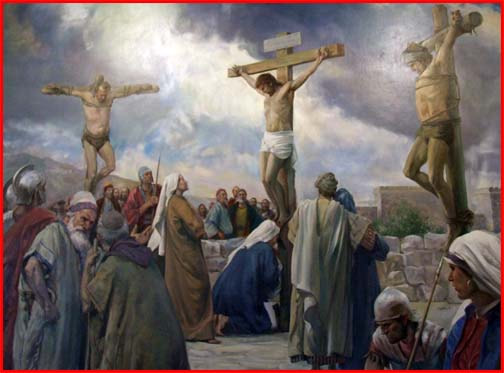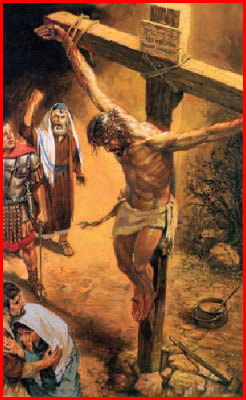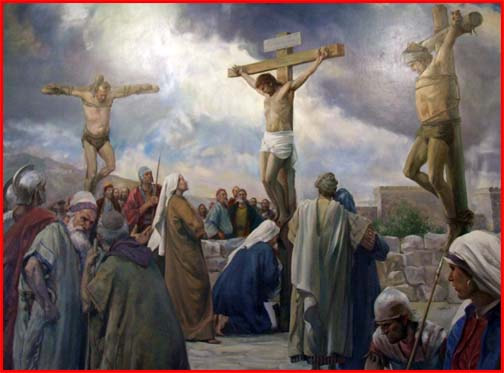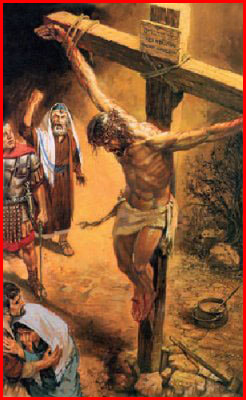| Devotion to Our Lady |
|
- Homepage
-
Daily Thoughts
- 2023 October Daily Thoughts
- Daily Thoughts Lent 2020
- Daily Thoughts for Advent 2019
- Daily Thoughts for October 2019
- Daily Thoughts for September 2019
- Daily Thoughts for August 2019
- Daily Thoughts for July
- Daily Thoughts for June
- Daily Thoughts for Easter 2019
- Daily Thoughts for Lent 2019
- Daily Thoughts for Christmas
- Daily Thoughts Easter 2022
- Sacred Heart
- Holy Ghost
-
Spiritual Life
- Holy Mass Explained
- First Friday Devotions
- First Saturday Devotions
- The Mercy of God
- Vocations
- The Path Everyone Must Walk >
- Gift of Failure
- Halloween or Hell-O-Ween?
- Ignatian Spiritual Exercises >
- Meditation is Soul-Saving
- Spiritual Communion
- Miraculous Medal
- Enrollment in Miraculous Medal
- St. Benedict Medal
- Holy Water
- Advice on Prayer
- Your Daily Mary
-
Prayers
- September Devotions
- Seven Sorrows of Our Lady
-
Novenas
>
- NV-Help of Christians
- NV-Nativity of Our Lady
- NV-Seven Sorrows
- NV- Sorrowful Heart
- NV-Pope St Pius X
- NV-La Salette
- NV-St Michael Archangel
- NV-Immaculate Heart
- NV-Assumption
- NV-Novena for Fathers
- NV-Novena for Your Mother
- NV-St Raphael Archangel
- NV-Souls in Purgatory
- NV-All Saints Day
- NV-Christ the King
- NV-Divine Motherhood
- NV-Guardian Angels
- NV-Rosary
- NV-Mirac Med
- NV- Imm Conc
- NV - Guadalupe
- NV - Nativity of Jesus
- NV-Epiphany
- NV-OL Good Success
- NV-Lourdes
- NV-St Patrick
- NV-St Joseph
- NV-Annunciation
- NV-St Louis de Montfort
- NV-OL Good Counsel
- NV-Last Supper
- NV-Passion
- NV-Pentecost
- NV-Ascension
- NV-Sacred Heart
- NV-Sacred Heart & Perpetual Help
- NV-Corpus Christi
- NV-OL of Perpetual Help
- NV-Queenship BVM
- NV-OL of Mount Carmel
- NV-St Mary Magdalen
- NV- Im Hrt
- August Devotions to IHM
- Immaculate Heart of Mary
- Litany of Dependence
- Prayers to St Mary Magdalen
- Prayers in Times of Sickness Disease & Danger
- Holy Souls in Purgatory
- Meditations on the Litany of Our Lady
- Special Feast Days
- Prayers to Mary (Mon-Sun)
- Litanies to Our Lady >
- Various & Special Needs
- Our Lady of the Rosary
- Our Lady of Mt. Carmel
- Our Lady of Perpetual Help
- Our Lady of Guadalupe
- Other titles of Our Lady
-
Rosary
- Downloads
- Consecration
- Easter Season
-
Holy Week
- Last Seven Words of Jesus >
- Characters of Passion >
- The Last Days of Christ
- Before Palm Sunday
- Palm Sunday
- Monday in Holy Week
- Tuesday in Holy Week
- Wednesday in Holy Week
- Holy Thursday (Last Supper)
- Holy Thursday (Agony & Arrest)
- Night Vigil with Christ
- Good Friday (Pilate & Herod)
- Good Friday (Way of Cross & Crucifixion)
- Saturday in Holy Week
-
Lent
- Ideas for Lent
- Daily Lenten Planner
- Daily Lenten Liturgy
- From Cold to Hot
- Lent with Aquinas
- Lent with Dom Gueranger
- Virtues for Lent
- History of Penance
- How Expensive is Sin?
- Confession of Sins
- Letter to Friends of the Cross
- Sermons for Lent
- Stations of the Cross >
- Lenten Prayers
- 7 Penitential Psalms
- Lenten Psalms SUN
- Lenten Psalms MON
- Lenten Psalms TUE
- Lenten Psalms WED
- Lenten Psalms THU
- Lenten Psalms FRI
- Lenten Psalms SAT
- Lenten Laughs
- Septuagesima
-
Christmas
- Epiphany Explained
- Suggestions for Christmas
- Food For Thought
- Christmas with Aquinas
- Christmas with Dom Gueranger
- Christmas Prayers
- Candles & Candlemas
- Christmas Sermons
- Christmas Prayers SUN
- Christmas Prayers MON
- Christmas Prayers TUE
- Christmas Prayers WED
- Christmas Prayers THU
- Christmas Prayers FRI
- Christmas Prayers SAT
- Twelve Days of Christmas >
-
Advent Journey
- Purgatory
- Christ the King
- Legion of Mary
- Scapular
-
Saints
-
Martyrs for the Faith
>
- Your Daily Martyr >
- All 365 Days of Martyrs
- Cristeros
- St Valentine & Valentine's Day
- Martyrs--Thomas Becket
- Martyrs--John the Apostle
- Holy Machabees
- Age of Martyrdom
- Carmelites of Compiegne
- Martyrs--Peter & Paul
- Martyrs--John the Baptist
- Martyrs--Andrew
- Martyrs--James the Great
- Martyrs--North American
- Martyrs--Seven Holy Sleepers
- Martyrs--Afra
- School of Martyrdom
- Martyrs--Christina
- Desert Saints >
- Saints for Sinners >
- Saints of Mary >
- History of All Saints Day
-
Martyrs for the Faith
>
- Precious Blood
- Synod 2023
-
Catechism
- Catechism Lesson 1
- Catechism Lesson 2
- Catechism Lesson 3
- Catechism Lesson 4
- Catechism Lesson 5
- Catechism Lesson 6
- Catechism Lesson 7
- Catechism Lesson 8
- Catechism Lesson 9
- Catechism Lesson 10
- Catechism Lesson 11
- Catechism Lesson 12
- Catechism Lesson 13
- Catechism Lesson 14
- Catechism Lesson 15
- Catechism Lesson 16
- Catechism Lesson 17
- Catechism Lesson 18
- Catechism Lesson 19
- Catechism Lesson 20
- Catechism Lesson 21
- Catechism Lesson 22
- Bible Study
-
Calendar
- Miracles
- Apparitions
- Shrines
- Prophecies
- Angels Homepage
- Hell
-
Church Crisis
- Conspiracy Theories
- Amazon Synod 2019 >
- Liberalism & Modernism
- Modernism--Encyclical Pascendi
- Modernism & Children
- Modernism--Documents
- The Francis Pages
- Church Enemies on Francis
- Francis Quotes
- Amoris Laetitia Critique
- Danger of Ignorance (Pius X)
- Restore all In Christ (Pius X)
- Catholic Action (Pius X)
- Another TITANIC Disaster?
- The "Errors of Russia"
- CRISIS PRAYERS
- Election Novena 2024
- The Anger Room
- War Zone
- Life of Mary
- Spiritual Gym
- Stupidity
- Coronavirus and Catholicism
- History & Facts
- Books
- Catholic Family
- Children
- Daily Quiz
-
Novena Church & Pope
- Day 01 Church-Pope Novena
- Day 02 Church-Pope Novena
- Day 03 Church-Pope Novena
- Day 04 Church-Pope Novena
- Day 05 Church-Pope Novena
- Day 06 Church-Pope Novena
- Day 07 Church-Pope Novena
- Day 08 Church-Pope Novena
- Day 09 Church-Pope Novena
- Day 10 Church-Pope Novena
- Day 11 Church-Pope Novena
- Day 12 Church-Pope Novena
- Day 13 Church-Pope Novena
- Day 14 Church-Pope Novena
- Day 15 Church-Pope Novena
- Day 16 Church-Pope Novena
- Day 17 Church-Pope Novena
- Day 18 Church-Pope Novena
- Day 19 Church-Pope Novena
- Day 20 Church-Pope Novena
- Day 21 Church-Pope Novena
- Day 22 Church-Pope Novena
- Day 23 Church-Pope Novena
- Day 24 Church-Pope Novena
- Day 25 Church-Pope Novena
- Day 26 Church-Pope Novena
- Day 27 Church-Pope Novena
- Day 28 Church-Pope Novena
- Day 29 Church-Pope Novena
- Day 30 Church-Pope Novena
- Day 31 Church-Pope Novena
- Day 32 Church-Pope Novena
- Day 33 Church-Pope Novena
- Day 34 Church-Pope Novena
- Day 35 Church-Pope Novena
- Day 36 Church-Pope Novena
- Day 37 Church-Pope Novena
- Day 38 Church-Pope Novena
- Day 39 Church-Pope Novena
- Day 40 Church-Pope Novena
- Day 41 Church-Pope Novena
- Day 42 Church-Pope Novena
- Day 43 Church-Pope Novena
- Day 44 Church-Pope Novena
- Day 45 Church-Pope Novena
- Day 46 Church-Pope Novena
- Day 47 Church-Pope Novena
- Day 48 Church-Pope Novena
- Day 49 Church-Pope Novena
- Day 50 Church-Pope Novena
- Day 51 Church-Pope Novena
- Day 52 Church-Pope Novena
- Day 53 Church-Pope Novena
- Day 54 Church-Pope Novena
- Penance Novena
- Daily WeAtheR Forecast
The Greatest and Most Important Week in the Church's Liturgical Year
CLICK ON ANY HOLY WEEK LINK BELOW
Also lots of LENTEN & HOLY WEEK DOWNLOADS on the downloads page (click here)
LITURGICAL PRAYERS FOR EACH DAY OF THE WEEK DURING LENT
| Sundays of Lent | Mondays of Lent | Tuesdays of Lent | Wednesdays of Lent | Thursdays of Lent | Fridays of Lent | Saturdays of Lent |
HOLY WEEK PAGES
| Daily Thoughts | Holy Week Main Page | Before Palm Sunday | Palm Sunday | Last Days of Christ |
| Holy Thursday Last Supper Novena | Good Friday Passion Novena |
| Monday of Holy Week | Tuesday of Holy Week | Wednesday of Holy Week | Holy Thursday (Last Supper) | Holy Thursday (Agony & Arrest) |
| Night Vigil With Christ | Good Friday (Pilate & Herod) | Good Friday (Way of Cross & Crucifixion) | Holy Saturday |
THE CHIEF CHARACTERS OF THE PASSION
| Characters of the Passion Mainpage | The Sanhedrin | Pharisees | Scribes | Saducees | Jewish Crowd | Roman Rulers |
| Judas | Annas & Caiphas | Pontius Pilate | Herod | Barabbas | Dismas the Good Thief | St. Peter | St. John | Mary Magdalen |
THE FOURTEEN STATIONS OF THE CROSS
| Introduction to the Stations of the Cross | Short Version of the Stations of the Cross (all 14 on one page) | 1st Station | 2nd Station | 3rd Station |
| 4th Station | 5th Station | 6th Station | 7th Station | 8th Station | 9th Station | 10th Station | 11th Station | 12th Station | 13th Station | 14th Station |
THE LAST SEVEN WORDS OF JESUS FROM THE CROSS
| Seven Last Words on the Cross (Introduction) | The 1st Word on the Cross | The 2nd Word on the Cross | The 3rd Word on the Cross |
| The 4th Word on the Cross | The 5th Word on the Cross | The 6th Word on the Cross | The 7th Word on the Cross |
PRAYERS AND DEVOTIONS TO THE SEVEN SORROWS OF OUR LADY
| Seven Sorrows Meditations | Short Prayers & Short Seven Sorrows Rosary | Longer Seven Sorrows Rosary |
| 1st Sorrow of Our Lady | 2nd Sorrow of Our Lady | 3rd Sorrow of Our Lady | 4th Sorrow of Our Lady |
| 5th Sorrow of Our Lady | 6th Sorrow of Our Lady | 7th Sorrow of Our Lady |
| Novena #1 to the Sorrowful Heart of Mary | Novena #2 to the Sorrowful Heart of Mary |
LENTEN PAGES
| ASH WEDNESDAY COUNTDOWN | LENT (MAIN PAGE) | DAILY THOUGHTS | DAILY LENTEN LITURGY | DAILY LENTEN PLANNER |
| LENTEN PRAYERS | THE 7 PENITENTIAL PSALMS | IDEAS FOR PENANCE | LENT WITH AQUINAS | LENT WITH DOM GUERANGER |
| HISTORY OF PENANCE | PENANCES OF THE SAINTS | HOW EXPENSIVE IS SIN? | CONFESSION OF SINS | ARE FEW SOULS SAVED? |
| VIRTUES FOR LENT | FROM COLD TO HOT | LENTEN LAUGHS | SERMONS FOR LENT | LETTER TO FRIENDS OF THE CROSS |
| STATIONS OF THE CROSS (INDIVIDUALLY) | ALL 14 STATIONS OF THE CROSS |
| THE LAST DAYS OF CHRIST | SPECIAL HOLY WEEK PAGES |
CLICK ON ANY HOLY WEEK LINK BELOW
Also lots of LENTEN & HOLY WEEK DOWNLOADS on the downloads page (click here)
LITURGICAL PRAYERS FOR EACH DAY OF THE WEEK DURING LENT
| Sundays of Lent | Mondays of Lent | Tuesdays of Lent | Wednesdays of Lent | Thursdays of Lent | Fridays of Lent | Saturdays of Lent |
HOLY WEEK PAGES
| Daily Thoughts | Holy Week Main Page | Before Palm Sunday | Palm Sunday | Last Days of Christ |
| Holy Thursday Last Supper Novena | Good Friday Passion Novena |
| Monday of Holy Week | Tuesday of Holy Week | Wednesday of Holy Week | Holy Thursday (Last Supper) | Holy Thursday (Agony & Arrest) |
| Night Vigil With Christ | Good Friday (Pilate & Herod) | Good Friday (Way of Cross & Crucifixion) | Holy Saturday |
THE CHIEF CHARACTERS OF THE PASSION
| Characters of the Passion Mainpage | The Sanhedrin | Pharisees | Scribes | Saducees | Jewish Crowd | Roman Rulers |
| Judas | Annas & Caiphas | Pontius Pilate | Herod | Barabbas | Dismas the Good Thief | St. Peter | St. John | Mary Magdalen |
THE FOURTEEN STATIONS OF THE CROSS
| Introduction to the Stations of the Cross | Short Version of the Stations of the Cross (all 14 on one page) | 1st Station | 2nd Station | 3rd Station |
| 4th Station | 5th Station | 6th Station | 7th Station | 8th Station | 9th Station | 10th Station | 11th Station | 12th Station | 13th Station | 14th Station |
THE LAST SEVEN WORDS OF JESUS FROM THE CROSS
| Seven Last Words on the Cross (Introduction) | The 1st Word on the Cross | The 2nd Word on the Cross | The 3rd Word on the Cross |
| The 4th Word on the Cross | The 5th Word on the Cross | The 6th Word on the Cross | The 7th Word on the Cross |
PRAYERS AND DEVOTIONS TO THE SEVEN SORROWS OF OUR LADY
| Seven Sorrows Meditations | Short Prayers & Short Seven Sorrows Rosary | Longer Seven Sorrows Rosary |
| 1st Sorrow of Our Lady | 2nd Sorrow of Our Lady | 3rd Sorrow of Our Lady | 4th Sorrow of Our Lady |
| 5th Sorrow of Our Lady | 6th Sorrow of Our Lady | 7th Sorrow of Our Lady |
| Novena #1 to the Sorrowful Heart of Mary | Novena #2 to the Sorrowful Heart of Mary |
LENTEN PAGES
| ASH WEDNESDAY COUNTDOWN | LENT (MAIN PAGE) | DAILY THOUGHTS | DAILY LENTEN LITURGY | DAILY LENTEN PLANNER |
| LENTEN PRAYERS | THE 7 PENITENTIAL PSALMS | IDEAS FOR PENANCE | LENT WITH AQUINAS | LENT WITH DOM GUERANGER |
| HISTORY OF PENANCE | PENANCES OF THE SAINTS | HOW EXPENSIVE IS SIN? | CONFESSION OF SINS | ARE FEW SOULS SAVED? |
| VIRTUES FOR LENT | FROM COLD TO HOT | LENTEN LAUGHS | SERMONS FOR LENT | LETTER TO FRIENDS OF THE CROSS |
| STATIONS OF THE CROSS (INDIVIDUALLY) | ALL 14 STATIONS OF THE CROSS |
| THE LAST DAYS OF CHRIST | SPECIAL HOLY WEEK PAGES |
THE FIFTH WORD
I thirst!
I thirst!
|
BLESSED ANNE CATHERINE EMMERICH
The Dolorous Passion of Our Lord Jesus Christ His body was become much more white from the quantity of blood He had lost; and I heard him exclaim, “I am pressed as the grape, which is trodden in the wine-press. My blood shall be poured out until water cometh, but wine shall here be made no more.” I cannot be sure whether He really pronounced these words, so as to be heard by others, or whether they were only an answer given to my interior prayer. I afterwards had a vision relating to these words, and in it I saw Japhet making wine in this place. Jesus was almost fainting; His tongue was parched, and He said: “I thirst!” The disciples who were standing round the Cross looked at Him with the deepest expression of sorrow, and he added, “Could you not have given Me a little water?” By these words He gave them to understand that no one would have prevented them from doing so during the darkness. John was filled with remorse, and replied: “We did not think of doing so, O Lord!” Jesus pronounced a few more words, the import of which was: “My friends and my neighbours were also to forget Me, and not give me to drink, that so what was written concerning Me might be fulfilled.” This omission had afflicted Him very much. The disciples then offered money to the soldiers to obtain permission to give Him a little water: they refused to give it, but dipped a sponge in vinegar and gall, and were about to offer it to Jesus, when the centurion Abenadar, whose heart was touched with compassion, took it from them, squeezed out the gall, poured some fresh vinegar upon it, and fastening it to a reed, put the reed at the end of a lance, and presented it for Jesus to drink. I heard Our Lord say several other things, but I only remember these words: “When My voice shall be silent, the mouths of the dead shall be opened.” Some of the bystanders cried out: “He blasphemeth again!” But Abenadar compelled them to be silent. VENERABLE MARY OF AGREDA The Mystical City of God In confirmation of this sorrow the Lord added: “I thirst!” The sufferings of the Lord and His anguish could easily cause a natural thirst. But for Him this was not a time to complain of this thirst or to quench it; and therefore Jesus would not have spoken of it so near to its expiration, unless in order to give expression to a most exalted mystery. He was thirsting to see the captive children of Adam make use of the liberty, which He merited for them and offered to them, and which so many were abusing. He was athirst with the anxious desire that all should correspond with Him in the faith and love due to Him, that they profit by His merits and sufferings, accept His friendship and grace now acquired for them, and that they should not lose the eternal happiness which He was to leave as an inheritance to those that wished to merit and accept it. This was the thirst of our Savior and Master; and the most Blessed Mary alone understood it perfectly and began, with ardent affection and charity, to invite and interiorly to call upon all the poor, the afflicted, the humble, the despised and downtrodden to approach their Savior and thus quench, at least in part, His thirst which they could not quench entirely. But the perfidious Jews and the executioners, evidencing their unhappy hardheartedness, fastened a sponge soaked in gall and vinegar to a reed and mockingly raised it to his mouth, in order that He might drink of it. Thus was fulfilled the prophecy of David: “In My thirst they gave Me vinegar to drink” (John 16:28; Psalm 68:22). Our most patient Savior tasted of it, partaking of this drink in mysterious submission to the condemnation of the reprobate. But at the intervention of His Blessed Mother, He immediately desisted; because the Mother of grace was to be the portal and Mediatrix of those who were to profit of the Passion and the Redemption of mankind. MEDITATION I Thirst This is the shortest of the seven cries. Al¬though it stands in our language as two words, in the original it is one. At the moment when Our Savior resumes His sermon, it is not a curse upon those who crucify Him, not a word of reproach to the timid disciples at the border of the crowd, not a cry of scorn to the Roman soldiers, not a word of hope to Magdalen, not a word of love to John, not a word of farewell to His beloved Mother. It is not even to God at this moment! Out from the depths of the Sacred Heart there wells through parched lips one awful word: “I thirst!” He, the God-Man, who threw the stars in their orbits and spheres into space, who “swung the earth a trinket at his wrist,” from Whose fingertips tumbled planets and worlds, who might have said, “The sea is Mine and with it the streams in a thousand valleys and the cataracts in a thousand hills,” now asks man—man, a piece of His own handiwork—to help Him. He asks man for a drink! Not a drink of earthly water, that is not what He meant, but a drink of love. “I thirst”—for love! Thirsting for Love The last word was a revelation of the sufferings of a man without God; this word was a revelation of the sufferings of God without man. The Creator cannot live without the creature, the Shepherd without the sheep, the thirst of Christ’s love without the soul-water of Christians. But what has He done to be entitled to my love? How much has God loved me? Oh, if I would know how much God has loved me, then let me sound the depths of meaning of that word “love,” a word so often used and so little understood. Love, first of all, means to give and God has given His power to nothingness, His light to darkness, His order to chaos, and this is Creation. Love means to tell secrets to the one loved, and God has told in the Scriptures the secrets of His Nature and His high hopes for fallen humanity, and this is Revelation. Love means also to suffer for the one loved, that is why we speak of arrows and darts of love as something that wounds — and God is now suffering for us on the Tree of the Cross, for “greater love than this no man has, than to lay down his life for his friend.” Love means also to become one with the one loved, not only in the unity of flesh but in the unity of spirit, and God has so loved us as to institute the Eucharist, that we may abide in Him and He in us in the ineffable unity of the Bread of Life. Love wishes also to be eternally united with the one loved, and God has so loved us that He has promised us His Father’s mansions, where a peace and a joy reign which the world cannot give and time cannot take away, and this is Heaven. Certainly, love has exhausted itself. What More Could He Do? There is nothing more that Christ could do for His vineyard than He has done. Having poured forth all the waters of His everlasting Love on our poor parched hearts, it is no wonder that He thirsts for love. If love is reciprocal then certainly He has a right to our love. Why do we not respond? Why do we let the Divine Heart die of thirst for human hearts? “Afterwards, Jesus knowing that all things were now accomplished, that the Scripture might be fulfilled, said: ‘I thirst!’” (John 19:28) Christ’s Thirst for Souls It was customary to prepare a drink for criminals about to be crucified. This was usually done by women who were friends of the one about to be executed or by women of compassion¬ate heart who lived in the vicinity. The drink consisted of wine mixed with bitter ingredients such as myrrh and aloes, and its purpose was to act as an anesthetic to deaden the pain. When Our Lord first arrived on Calvary, before being nailed to the Cross, He was offered such a drink. Most likely it had been prepared by some of the women who had been His followers. He tasted it, but would not drink. He thus afforded those who had made it the consolation of knowing that He had sipped the drink. But He did not take enough to lessen His pain. He wanted to suffer with full consciousness. Later, just shortly before He died, Our Lord uttered the words, “I thirst.” It was then that someone—probably a soldier—dipped a sponge into the mixture of vinegar and water that was there and extended it on a stalk of hyssop to the lips of the dying Savior. This vinegar and water was available at the scene of execution because it served to slake the thirst of the soldiers. It seems that the act of giving this liquid on a sponge to Christ was a slight act of mercy. Some of those standing by spoke up against even this, saying: “Let be, let us see whether Elias will come to deliver him.” (Matt. 27:49). But the man extending the sponge went ahead, and Our Lord accepted the proffered refreshment. (John 19:30). Thirst Is Torture Thirst was one of the great agonies of crucifix¬ion. It was caused by the loss of blood, by fever and by general exhaustion. Thirst accompanies any severe, drawn-out pain. It can become worse than the original pain that causes it. According to St. Robert Bellarmine, St. Emmeram, when tied to a stake and tortured, complained only of thirst. Men at sea who go for a long time without water have become raving maniacs because of their thirst. Anybody who has suffered a fever knows something of the agony of thirst. In fact, even a healthy person on a hot day can become almost desperate for something to drink. Thirst, then, was one of the sufferings of Our Lord upon the Cross. Not a Plea for Comfort Our Lord’s words came at the very end, just before His death. Therefore they were not a plea to alleviate the thirst itself. He had endured the long time on the Cross without drink, refusing that which was offered to Him at first. After enduring this suffering to the end, He finally said: “I thirst,” in order to acquaint us with the fact of this additional suffering and to fulfill an Old Testament prophecy—as St. John says: “that the scripture might be fulfilled.” The Scripture referred to was from Psalm 68:22: “And in my thirst they gave me vinegar to drink.” A Deeper Meaning In his explanation of this Psalm, St. Augustine says that there was another reason why Christ said the words: “I thirst.” St. Augustine says that these words showed not only the Savior’s desire for drink, but also—and still more—the desire with which He was inflamed, that His enemies might believe in Him and be saved. Our Lord thus desired so greatly the good and the salvation of the Jewish people that His longing can be well described as a thirst. One who wants something intensely is said to thirst for it. For example, a person may thirst for knowledge or for fame. Just a few days previously, Our Lord had entered Jerusalem in triumphal procession. As He drew near and saw the city, He had wept over it, saying: “If thou also hadst known, and that in this thy day, the things that are to thy peace; but now they are hidden from thy eyes . . because thou hast not known the time of thy visitation.” (Luke 19:42-44). Our Lord had wept over the city of Jerusalem because it would be destroyed (by the Romans in 70 AD.) and its people would suffer much in the next generation, and ever after, as a punishment for not accepting Him. He wept over the souls that would be lost due to their stubbornness and hardheartedness. His longing for the souls of His people was also expressed when He had lamented: “Jerusalem, Jerusalem, that killest the prophets, and stonest them that are sent to thee, how often would I have gathered thy children as the bird doth her brood under her wings, and thou wouldst not?” (Luke 13:34). Jesus Thirsts for All Souls Our Lord thirsted for the souls of His own people, the members of the Jewish race. He thirsted also for the souls of all mankind. In the seventeenth century, when He appeared to St. Margaret Mary, He said: “Behold this Heart which has so loved men that it has spared nothing to testify its love for them, even to exhausting and consuming itself for their sake. But in return for this I receive nothing from the generality of mankind but ingratitude....” The Heart of Jesus is a great Heart, full of love, looking for love in return, so that souls may be saved and come to Heaven. Our Lord also said to St. Margaret Mary: “My Heart is so full of love for men that it can no longer contain within itself the fire of charity.” Thus we may expand the interpretation of St. Augustine and apply the words “I thirst” to express Our Lord’s longing for the love of all mankind and for the salvation of all souls. Why He So Thirsted A soul—each soul—is precious. Its value cannot be measured in material terms. The world itself is not worth one soul. There is simply no comparison between an immortal soul, capable of loving God for all eternity, and the treasures of earth. This is as things appear to the eye of God in their true value. Likewise, from the viewpoint of man himself, there can be no comparison between gaining untold wealth or pleasure or power, and the saving of his own soul. No one has put this truth more clearly than Our Lord Himself when He asked the question: “For what doth it profit a man, if he gain the whole world, and suffer the loss of his own soul?” (Matthew 16:26). Christ hanging on the Cross knew the immeasurable value of each soul in itself. He knew how much it meant for each person to save his soul and be happy in praising and loving God for eternity. So His great love reached out to each person, and His great Heart longed for the eternal happiness of each person. He thirsted for souls. Our Own Incredible Blindness It is one of the mysteries of life why so many people in practice put such a slight value upon their souls. It is a mystery of blindness, perversity and shortsightedness. Whatever is regarded as precious is guarded. Money is put into safes with complicated locks. Jewels are placed in vaults. Health is a matter of daily concern. When something goes wrong or seems wrong with bodily health, the doctor is straightway consulted. Vitamin charts are stud¬ied; people who have to lose weight check on their calories. They do a very good job of fasting, much better than most do during Lent. Insurance is kept up on items of property that could be suddenly destroyed or damaged, such as homes and cars. Yet the man who would not think of taking out a car in traffic without insurance may think nothing of living in mortal sin, when an accident or a sudden sickness could immediately block out consciousness and result in death without a chance of obtaining forgiveness, and thus bring eternal damnation. People who would be frightened to death at taking a chance on using a weak ladder, or crossing a condemned bridge, take all kinds of chances with their souls. They balance on the constantly unraveling rope of life, while below lie the flames of Hell. They are the real daredevils in the strict sense of the word, for a sudden slip from or break in the rope of life—and they will belong to the devil for eternity. It is indeed a mystery how people can be so shortsighted in regard to the value of their immortal souls. Your Soul First We can overcome this shortsightedness by keeping our eyes fixed on the Cross of Christ, by reflecting on all He did to save the souls of men, by considering His yearning love for each person. First of all, each of us has his own soul to take care of The needs of our own soul must be placed in the position of priority over all bodily needs. If there is a conflict, the soul must never come out in second place. It may happen that there is a deadly disease wasting our souls—a habit of frequent mortal sin against which our efforts have been only half-hearted. This deadly disease must by all means be conquered, no matter what the cost. Our Lord advised: “If thy hand, or thy foot scandalize [provide an occasion of sin to] thee, cut it off, and cast it from thee. It is better for thee to go into [eternal] life maimed or lame, than having two hands or two feet, to be cast into everlasting fire. And if thy eye scandalize thee, pluck it out, and cast it from thee. It is better for thee having one eye to enter into life, than having two eyes to be cast into Hell fire.” (Matthew 18:8-9). Here is the answer to those who think they must sinfully limit a family; to those who are invalidly married and therefore living in constant mortal sin; to those who habitually commit grievous sin of any kind. No matter what it costs, no matter what must be torn asunder, though it be as close as a hand or foot or eye—all must go when in conflict with the interests of one’s immortal soul. There can be no value so precious—whether economic, or pertaining to human affection, or any¬thing whatsoever—as the value of one’s soul. A man who was sick and pretty well up in years once remarked that it was only when he was about fifty years old that he first realized force¬fully that one day he must die and meet his judgment. The sooner we too realize this, perhaps the sooner will we realize that ultimately the only lasting values are those that are spiritual and that pertain to God and our souls. We Are Keepers of Our Brothers’ Souls In our care for our own souls, however, we must not forget the souls of others. We are told to love our neighbor as ourselves. (Matthew 22:39). In part, this refers to bodily needs, but it refers in particular to the spiritual needs of the soul. Since our first obligations are toward those who are closest to us, we have to take into consideration the souls of members of our own families. We may not repeat the question of Cain: “Am I my brother’s keeper?” (Genesis 4:9). In a quite definite way we are responsible for the salvation of husband or wife, son and daughter, brother and sister, friend and neighbor. Parents usually recognize that they have an obligation to provide for the spiritual welfare of their children. But not all, of course, do as well as they might in this regard, making the mistake of overemphasizing physical and educational care. For instance, some parents are quite exacting about school grades, requiring that their children work hard at their studies. But they think little of allowing the children to miss their religious instructions, or they do little to encourage regular attendance at Mass and reception of the Sacraments. The home is well heated and drafts are abhorred. Yet question¬able books and magazines are permitted to chill innocent fervor, and worse. The Holy Name of God may be heard more often in expressions of anger than in words of prayer. The walls of the house are clean and tastefully decorated, yet the strong spirit of faith and of confidence in God does not pervade the home because the parents’ values are much more consciously material than spiritual. Thus, parents technically recognize their obligation of providing for the spiritual welfare of their children, but actually do little about it. Still less do husband and wife recognize their obligation toward each other’s spiritual welfare. The husband recognizes his duty to provide for the family; the wife her duty of home-making. But they may fail to see that their main duty to each other is to help the other party obtain eternal salvation. Two people who live as closely together and share life as much as husband and wife can¬not but have a definite effect on the supernatural destiny of each other. So it is with all who share life together as relatives and friends. They do have an effect one upon the other. If we have the proper outlook on the value of souls, our influence cannot be anything but good. Interest in Souls Must Be Universal One whose heart beats in union with the Sacred Heart of Jesus can never forget the spiri¬tual good of all other people. He will pray for those who have fallen away from the Church; he will pray for the conversion of men to the true Faith. He will make sacrifices in order that all men may come to the knowledge of the truth and to the grace of the seven Sacraments. In a way, one who thirsts for souls is always working for them. He is like a businessman who is always trying to improve his business, who uses every opportunity to establish friendly relations or to pick up useful information. The real busi¬nessman does not miss any opportunities. Neither will one who is truly interested in the salvation of souls miss any opportunities. To think differently, to act from any weaker principle, is to refuse to slake the thirst of Christ. We Can Help Each of us will have opportunities of various kinds to help save souls and to win souls to the saving truths of the Faith. If we are really interested, we will learn how to explain and answer questions, or we will make available to those interested some little pamphlet on the subject. What a great amount of good might be done if we kept on hand a supply of pamphlets on key topics and handed them out as opportunity arose! We will always give a good example and live in such a way as to lead others to Christ. If we really love Christ, we will want the things that He wants. With our whole soul, we will seek to help in what¬ever way we can so that souls may be saved. In these ways all of us can answer the plea of Christ. Thus we may help to satisfy His great desire and thirst for the souls of all mankind. PRAYER Dear Jesus! You have given all for me, and yet I give nothing in return. How often You have come to gather vintage in the vineyard of my soul, and have found only a few clusters! How often You sought, and found nothing; knocked, and the door of my soul was closed to You! How often You asked me for a drink, and I gave You only vinegar and gall! How often, dear Jesus, I feared lest, having You, I must have nothing else besides. I forget that if I had the flame, I would forget the spark; if I had the sun of Your love, I could forget the candle of a human heart; if I had the perfect round of Your happiness, I could forget the broken arc of earth. O Jesus, my story is the sad story of a refusal to return heart for heart, love for love. Give me, above all human gifts, the sweet gift of sympathy for You. |
Web Hosting by Just Host



